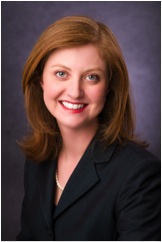
Kara Kerwin officially becomes President, Alison Consoletti Zgainer becomes Executive Vice President
CER Press Release
Washington, DC
November 1, 2013
The Center for Education Reform (CER) today undergoes its leadership transition, with Kara Kerwin officially becoming President, and Alison Consoletti Zgainer the Executive Vice President of the 20 year-old organization that continues to be the leading advocate for lasting, substantive and structural reform in the US.
Jeanne Allen, CER’s outgoing President, remains with the organization as a senior fellow, president emeritus and member of the Board of Directors.
Kerwin and Consoletti assume their new roles in the wake of CER’s 20th Anniversary, and take over efforts to reinforce themes from the 20th Anniversary Conference as well as the growing consensus across the country surrounding choice and parent empowerment.
“This transition combined with the themes of our 20th Anniversary conference will help lay the groundwork for the next 20 years of meaningful change,” said Allen. “I have complete confidence that Kara and Alison’s leadership will effectively usher in the next generation of reformers.”
Added Kerwin, “It has been an honor to work under Jeanne Allen, a true reform pioneer whose tireless efforts have bridged the gap between innovative ideas and the real reforms we see benefitting students across the country.”
Kara Hornung Kerwin (@CERKaraKerwin) is President of The Center for Education Reform. Formerly the Vice President of External Affairs, she has managed efforts to bring reform to dozens of states, and has a wealth of policy, grassroots and media relations experience. She has counseled thousands of parents and school leaders seeking to maximize educational opportunity in their local communities. Kara has also assisted in the development of countless local, state and national partnerships created to provide viable educational options for all students. Having spent the last 14 years at the Center, she has managed all aspects of the organization and is intimately familiar with the needs and demands of the reform movement.
Kara is a frequent speaker and panelist on education reform issues in legislative, academic and industry settings. Her unique understanding of the education reform landscape draws from multiple perspectives that were developed working hand-in-hand with parents in some of America’s most disadvantaged neighborhoods; with educators and administrators hungry for reform; with legislators and other public officials at the federal, state and local levels; and with top media figures and advocacy leaders across the country. Kara has authored and contributed to countless reports and studies, state and federal legislation, and parent-focused publications.
Kara cut her teeth in public policy working in the offices of U.S. Senator Charles Schumer and the late U.S. Senator Daniel Moynihan which provided a unique perspective of the workings of government. Kara Kerwin is a native of Buffalo, NY, where she continues to be actively engaged with the community and schools.
Kara received a B.A. in political science from American University in Washington, D.C. She and her husband, Mike, are the proud parents of one daughter.
Alison Consoletti Zgainer is the Executive Vice President of The Center for Education Reform (CER), who for seven years has managed CER’s education data and information that provide critical support to policymakers, legislators and families. Alison ensures that CER has the most current data and research available on education practice and policies in order to enact change through legislation and advocacy. She is the writer of many of CER’s foundational publications including the Charter School Laws Across the States: Ranking and Scorecard, the Survey on America’s Charter Schools and provided data analysis for the Parent Power Indexä. Alison has also served as a peer reviewer for the federal Charter Schools Program Grant.
Alison is a native of Massachusetts, the daughter of two civic-minded parents, and a huge Red Sox fan. She began her career as a program coordinator at the National Hispana Leadership Institute, an organization dedicated to helping Hispanic women elevate their careers. She has a Masters in Public Administration, with an emphasis on nonprofit management from George Mason University in Virginia, and a bachelor’s in international affairs from The George Washington University in Washington, D.C. She lives with her husband and their two cats in Arlington, Virginia.
Jeanne Allen (@JeanneAllen) is the founder The Center for Education and will now serve the organization as senior fellow, president emeritus and a member of the Board of Directors. Prior to founding the Center, Jeanne had served in prominent roles at the US Department of Education, The Heritage Foundation and on Capitol Hill. In addition, Jeanne will engage in new endeavors in education, providing her expertise to organizations in the fields of communications and media, executive search, government relations, and fundraising
Over the past twenty years, Jeanne has been on the forefront of supporting innovation in education. Jeanne currently serves on the advisory boards of such pioneering organizations as the Education Innovation Council at Arizona State University; Noodle Education, a tech savvy education company looking to revolutionize consumer choice in education; Capital E, a regional technology investment network, and the University of Pennsylvania Graduate School of Education entrepreneurship programs. Jeanne also is an advisor to the Relay Graduate School of Education pipeline project, and the Education Industry Association, which honored her with its “Friend of Education Award” in 2012. In 2010, Working Mother named Jeanne one of the “Most Powerful Moms in Education.”
Jeanne is a frequent commentator in the media and her name will be found wherever education reform and innovation is covered. She has appeared on NBC, ABC, MSNBC, Fox News and CNN, as well as NPR and national and local talk radio. A prolific writer, she has published hundreds of articles and commentaries in newspapers and journals. Jeanne is a regular contributor to the National Journal education blog, while her honesty and linear thinking on issues such as reform, choice for parents, and teacher accountability has made her articles in outlets such as the Huffington Post essential reading. Her book, The School Reform Handbook: How to Improve Your Schools, ignited parent-led efforts for education reform.
Jeanne has been a trusted advisor to presidential administrations, governors, and lawmakers, as she is well known for her ability to communicate clearly and forcefully while being able to find common ground to achieve their goals. She has been called a vibrant speaker and addresses groups of all sizes and types, from keynote addresses, and panel discussions to formal ceremonies. Jeanne earned a bachelors degree in political science from Dickinson College, undertook masters’ studies in politics at the Catholic University of America and is currently enrolled in an executive doctoral program at the University of Pennsylvania. She has raised four accomplished children and is married to Dr. Kevin L. Strother.
To view highlights of CER’s 20th Anniversary Conference and Gala, visit www.edreform.com. Also, see what’s trending for #CERat20 on Facebook and Twitter. – See more at: https://edreform.com/2013/10/the-center-for-education-reforms-20th-anniversary-celebration-sets-new-agenda/#sthash.szkSGHUY.dpuf














